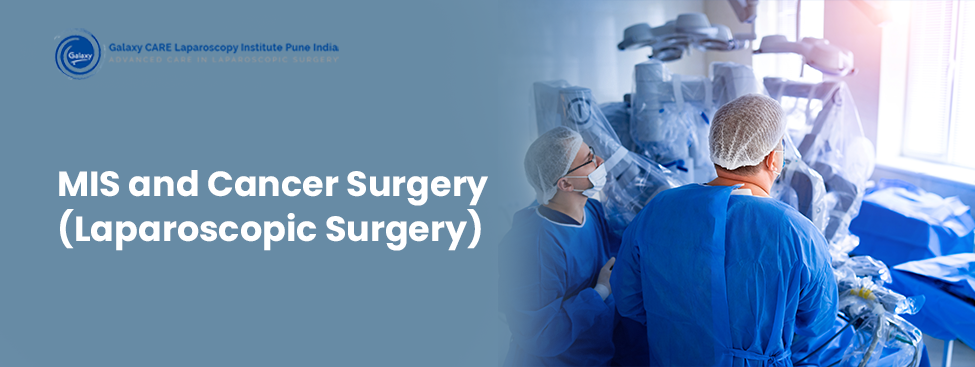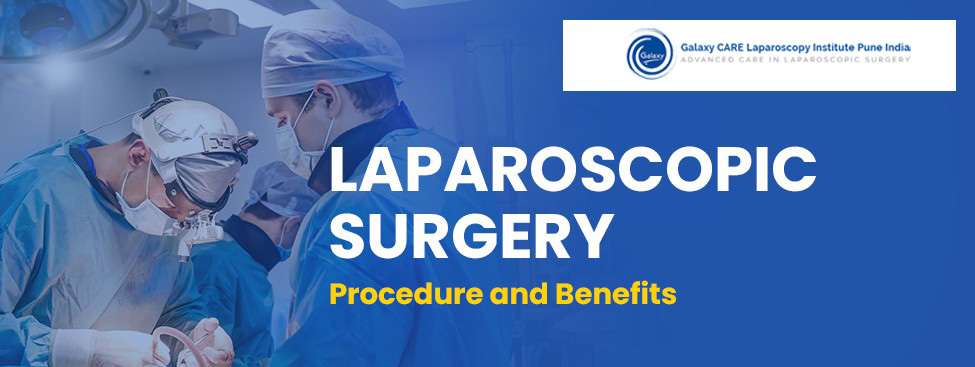
MIS and Cancer Surgery
The surgical treatment of cancer has undergone a paradigm shift. The advances in the last decade have been taking place at a breathtaking pace. A few years back the completeness of the surgery was measured by the size of the incision. Thus evolved the dictum of “Big surgeons take big incisions”.
The main aim of any cancer surgery is to remove cancer in totality like taking out the complete breast in breast cancers. With a better understanding of the disease, more and more conservative surgeries are being performed.
With the advent of “Key Hole” surgeries, there has been a drastic change in the management of all cancers.
Thus an esophageal or rectal cancers can be removed by laparoscopy- that is with the help of very thin instruments inserted through several mini incisions on the abdomen. Laparoscopic surgery follows exactly the same principles as open cancer surgery. The difference is the same as eating rice with hands or chopsticks. The result is equivocal but the approach changes.
Laparoscopic surgery for cancer has gone through multiple scientific trials before being accepted in the scientific community. It has taken more than 15 years of scientific publications to prove that the results of laparoscopic surgeries are the same as that of open surgeries. Thus, it is now an accepted modality in esophageal, rectal and uterine cancer.
The cervical cancer surgery was done in Pune in 2002 and is published as “Pune technique”. It is well accepted worldwide due to its reproducibility.
The various advantages of laparoscopic surgery are
- Bloodless surgery
- Minimal postoperative pain.
- Early recovery of the bowel
- Early return to routine activity.
- Early application of adjuvant treatment like chemotherapy and radiotherapy.
Laparoscopic surgery is also the most evidence-based surgery. All surgeries are recorded and thus one can be sure about the adequacy of surgery. The magnification helps to do the surgery with more precision. You must get your surgery done by the city’s renowned laparoscopic cancer surgeon.
The main question is why is it not done by many surgeons? The reason being it is instrument and skill dependent. These surgeries need modern quality instruments like high-definition cameras and other energy devices. The skills have to be learnt. It is like learning to eat with fingers and then learning to do the same with chopsticks- which is tough. It takes a few years to learn the procedures. Though the advantages are well accepted by the patients and doctors, there is a gap between demand and supply.
The natural evolution of laparoscopic surgery is Robotic surgery. Robotic surgery is the same as minimal access surgery but is done with the use of a medical robot. The three robotic arms are inserted into the patients’ bodies. The surgeon sits on the console which shows the “3 – Dimensional” vision. The magnification is many times higher than what our eyes see. This way all organs and blood vessels look magnified so that the chances of damaging them are very minimal. Thus, the surgeon operates with so much precision that if one wants to cut half a cm or put a stitch 1 cm apart it can be done. This is like driving a car on a ten-lane super-highway in broad daylight without traffic and with cruise control. Very few things are left to chance. Robot helps to overcome the “skill” gap and helps to overcome the limitations. Robotic surgery was mainly popularized for prostatic cancer, but now esophageal, uterine and liver cancers are removed robotically. If you are suffering from any of these types of cancer, then you can get in touch with the leading Cancer surgeon in Pune at Galaxy Care Hospital.
The future of robotic surgery is surgeon less surgery. These “manless” robotic surgeries have been done in more than 100 patients in the world. These surgeries are in their infancy but with the developing technology, these may be the future.
Thus, there has been a shift from open surgeries to laparoscopy to robotic surgeries. The safety record is proven by various institutions in the world. The world seems to be reaching the ultimate goal of painless, scarless and safe surgeries in all the patients. Finally, it’s not the scar but the precision and safety which matters, irrespective of the surgeon involved. It’s a matter of time when a surgeon sitting in a laparoscopic cancer surgery hospital in Pune can operate on patients worldwide.


